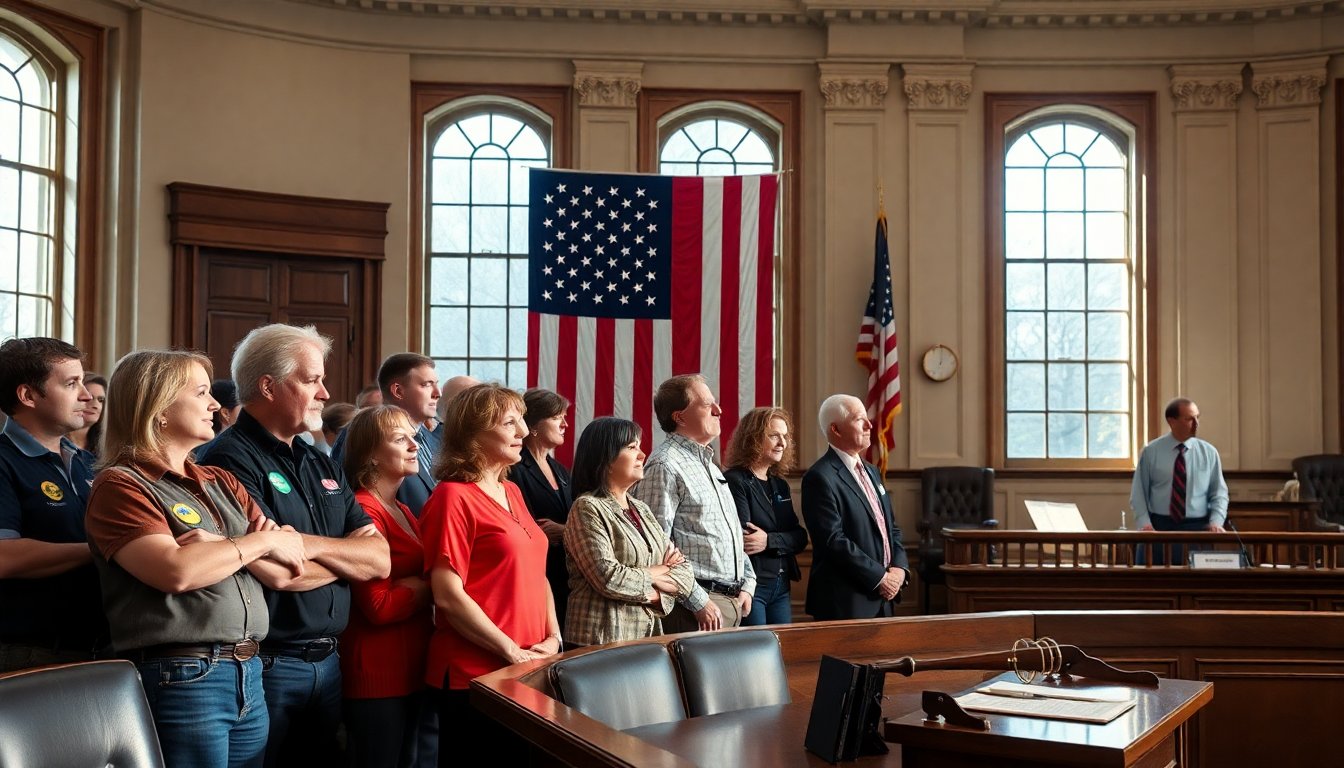Table of Contents
Wisconsin court rules in favor of conservative activist in defamation case
In a significant ruling, the Wisconsin Court of Appeals has sided with Scarlett Johnson, a conservative activist and leader of the Moms for Liberty chapter in Wisconsin. This decision stems from a defamation lawsuit linked to her social media activities. The case highlights the ongoing debates regarding parental rights and educational policies in public schools.
Background of the case
The legal dispute originated when Johnson criticized the Mequon-Thiensville School District for hiring a Social Justice Coordinator. This position was previously held by former teacher Mary MacCudden. In October, Johnson utilized social media to voice her concerns, sharing a screenshot of MacCudden’s LinkedIn profile. Her remarks questioned the need for such a role, stating, “Why the hell am I paying for a ‘Social Justice Coordinator’ in my school district?” Johnson’s comments labeled MacCudden with terms such as “woke,” “bully,” and “lunatic.”
Legal proceedings unfold
Following the controversial posts, MacCudden initiated a defamation lawsuit against Johnson, alleging that the statements had damaged her reputation. The circuit court permitted certain aspects of the case to move forward. Johnson, supported by the Wisconsin Institute for Law and Liberty (WILL), subsequently appealed the ruling. They contended that Johnson’s comments represented personal opinions, which are safeguarded under the First Amendment.
The court’s decision
The Wisconsin Court of Appeals recently ruled in favor of Johnson, highlighting that her statements were subjective opinions rather than verifiable facts. The court pointed out that words like “bully” and “lunatic” are inherently subjective and lack precise definitions, which is crucial in defamation lawsuits. The judges emphasized that terms such as “woke,” “White savior,” and “god complex” do not have clear meanings that would enable a jury to evaluate their truthfulness.
Implications for free speech
Johnson argues that the lawsuit aims to silence her and other parents opposing Diversity, Equity, and Inclusion (DEI) initiatives in schools. Reflecting on a past defamation claim during a school board election, she characterized it as politically motivated intimidation. “I felt I had to fight back in this case. They’d keep going after parents like me,” she said.
Setting a precedent for parents
In this ruling, Johnson aims to empower other parents to voice their concerns about what she perceives as radical ideologies in education without the fear of legal consequences. She asserts that this outcome establishes a legal precedent, enabling parents across the country to communicate their concerns regarding school policies more openly.
Luke Berg, Deputy Counsel at WILL, commended the court’s decision, emphasizing that individuals, including Johnson, have the right to critique local governments and educational institutions. He remarked that the lawsuit against her was without merit and should have been dismissed at an earlier stage.
Future considerations
The recent appeals court ruling represents a significant win for Johnson. However, MacCudden’s attorney, James McAlister, has stated that they are weighing their options, including a possible appeal to the Wisconsin Supreme Court. This ongoing legal discussion raises important questions about the limits of free speech, particularly in relation to educational policies and the obligations of public figures.
As this case continues to develop, it highlights broader issues regarding parental involvement in education and the increasingly contentious nature of school policies. The verdict not only underscores the value of free expression but also stresses the necessity for open communication between parents and school administrators.


